How to Use a CRM to Build and Manage Your Real Estate Investment Client Base
How to Use a CRM to Build and Manage Your Real Estate Investment Client Base
In today’s competitive real estate market, leveraging technology to manage and grow your client base is more important than ever. A Customer Relationship Management (CRM) system is not just a tool for maintaining contact information—it’s a powerful asset that can help you build and manage a thriving real estate investment business.
Whether you're an experienced investor agent or just starting out, a CRM can streamline your processes, enhance client relationships, and ultimately, boost your sales. Here's how you can use a CRM to track clients' investment goals, manage follow-ups, and deliver personalized real estate opportunities that turn prospects into lifelong clients.
1. Track Clients' Investment Goals
Real estate investment is all about strategy, and each investor has unique goals. A CRM allows you to track these individual objectives—whether your client is interested in long-term rental properties, short-term flips, or building equity over time.
Using a CRM, you can:
Record specific investment goals: Keep detailed notes on whether a client prefers pre-construction condos, commercial spaces, or rental properties.
Track portfolio growth: Follow your client’s investment progress and adjust your approach based on their evolving needs and interests.
Store financial preferences: Knowing your client’s budget and financing preferences enables you to present deals that match their financial situation and aspirations.
With all this information readily accessible, you’re positioned to act as a trusted advisor, not just a salesperson. When an opportunity arises that aligns with a client’s goals, you’ll be ready to present it immediately.
2. Manage Follow-Ups Efficiently
Timely follow-ups can make or break a deal. A CRM ensures that you never miss an opportunity to engage with your clients at the right time. With automation tools built into many CRM systems, you can set reminders for follow-ups, schedule emails, and track communication history.
Here’s how a CRM can optimize your follow-up strategy:
Automated reminders: Set alerts to check in with clients after property showings, send periodic market updates, or follow up on investment discussions.
Email automation: Send personalized drip campaigns to nurture leads, keep investors informed about new listings, or provide valuable market insights.
Call tracking: Log calls and meetings, ensuring that you maintain a record of every client interaction and plan future engagements effectively.
Consistency in follow-ups shows your clients that you are proactive, which builds trust and fosters long-term relationships.
3. Deliver Personalized Real Estate Opportunities
Personalization is key to converting prospects into clients. A CRM allows you to segment your client base based on their preferences, geographic location, and investment experience. Armed with this data, you can deliver personalized property suggestions and investment opportunities that resonate with their specific needs.
Some key benefits include:
Targeted marketing: Group your clients based on criteria such as investment type (residential vs. commercial) or risk tolerance, and send them tailored property recommendations.
Real-time market updates: Use your CRM to automate market insights and property alerts that align with a client’s criteria, giving them a competitive edge.
Customized reports: Generate and send personalized market analyses or property performance projections, helping your clients make informed decisions.
The ability to customize your communication means that every client feels like they are receiving exclusive opportunities, increasing the likelihood of a successful transaction.
4. Build Long-Term Relationships
One of the most valuable aspects of a CRM is its ability to help you maintain long-term relationships. For real estate investors, success often depends on finding a partner they can rely on for future deals, and a CRM enables you to stay in touch long after the initial transaction.
Ways to build lasting relationships include:
Regular value-driven communication: Use your CRM to send periodic updates on market trends, tax laws, or emerging investment opportunities.
Birthday and milestone reminders: Recognize personal milestones like birthdays or investment anniversaries to create a more meaningful connection.
Client satisfaction tracking: Use your CRM to monitor client satisfaction through surveys or feedback requests, ensuring you're always improving your service.
A well-maintained CRM system is the backbone of creating strong, lasting connections that turn clients into repeat investors.
Final Thoughts
As a real estate professional, managing your investment client base effectively is crucial to long-term success. A CRM empowers you to track client goals, manage follow-ups efficiently, and deliver highly personalized opportunities—all while fostering strong, long-term relationships. By leveraging this technology, you can stay organized, increase your productivity, and build a thriving real estate investment business.
By integrating a CRM into your daily operations, you're not only improving your efficiency but also positioning yourself as an indispensable advisor to your clients, ensuring they keep coming back to you for all their real estate investment needs.

